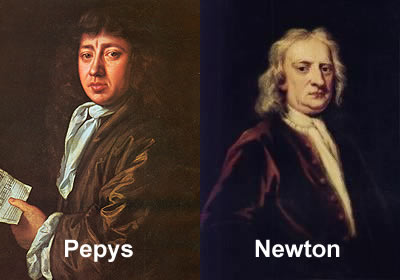NEURAL SYSTEMS OF SOCIAL BEHAVIOR CONFERENCE, AUSTIN, 11-13 MAY 2007
The the Neural Systems of Social Behavior conference will take place in Austin, TX, May 11-13th. The schedule is available and registration is now open.
Information on registration, hotel, and transportation can be found here
Online registration is now open and will remain open until all spaces are filled. Registration and payment of fees can be carried out through the PayPal on the website. Space is limited.
Information on the schedule can be found at:
http://mindbrain.ucdavis.edu/content/Labs/Beer/Conference-Schedules
Photo credit: http://www.flickr.com/photo_zoom.gne?id=348668447&size=m
ASSOCIATION FOR CONSUMER RESEARCH (ACR) CONFERENCE MEMPHIS: OCT 25-28, 2007
The 2007 North American Conference of the Association for Consumer Research will be held at the elegantly refurbished Peabody Hotel in Memphis, Tennessee, from Thursday October 25 through Sunday October 28, 2007. As in past years, the conference will provide a forum for scholarly presentations, discussions, and collaborations on consumer behavior.
There will be six main forums for the presentation and discussion of research and scholarly thought. In addition to the five tracks to which submissions are sought, this year’s conference will feature a new forum called “Epistemic Sessions.”
1) Competitive Paper Sessions include papers that represent the completed work of their authors. The ACR conference co-chairs assign accepted papers to Conference sessions that reflect similar scholarly interests.
2) Symposia (previously titled “special sessions”) provide opportunities for focused attention on cutting-edge and important areas of research. Successful sessions feature research that crosses theoretical, methodological or substantive boundaries but offer a coherent perspective in building bridges across emerging substantive, theoretical, or methodological issues.
3) Working Paper Track: Participants typically present preliminary findings from the early stages of a research program. Authors distribute their papers and display their findings poster-style in a plenary session.
4) Roundtables: Encourage intensive participant discussions of consumer research topics, as well as disseminations of professional and technical skills.
5) Film Festival: Presents edited video recordings on topics related to consumer behavior.
6) Epistemic Sessions: The goal of the epistemic sessions is to provide a forum for researchers within a given theoretical paradigm to raise, debate and resolve contentious theoretical and methodological issues pertinent to their paradigm. While the featured speakers will be invited by session chairs, your input on issues for discussion will be sought closer to the date of the conference via a web discussion board.
Submission and Decision Deadlines
Submissions for competitive papers, symposia, working papers and roundtables must be received no later than Friday March 23, 2007. Notification of acceptance in these four categories will be made by Friday July 27, 2007. The entry deadline for Film Festival submissions is Friday April 13, 2007. Notification of accepted films will be June 1, 2007.
A detailed document announcing additional conference highlights and a call for submission are now available on the conference website: http://www.acrweb.org/acr (Click on link Call for Submissions in the left panel). It will also soon be made available on the main ACR website: http://www.acrwebsite.org/
CONFERENCE CO-CHAIRS
Angela Lee (Northwestern University)
Dilip Soman (University of Toronto)
SUBJECTIVE PROBABILITY, UTILITY AND DECISION MAKING CONFERENCE
The bi-annual SPUDM Conference run by the European Association of Decision Making will take place in Warsaw, Poland between 19th and 23rd August 2007.
Researchers and students interested in any in any area of decision making or in a related field are invited to participate in the SPUDM 21.
The SPUDM Conferences have a long history and one of the earliest meetings – SPUDM 6 was held in Warsaw. After thirty years SPUDM is coming back to Poland.
The organizers of the upcoming meeting are dedicated to continuing the long tradition of SPUDM conferences status as the primary venue for exchanging novel ideas in psychological and economic decision-making and attracting the new generation of researchers to the field. To this end, we have succeeded in inviting a group of the most distinguished researchers from both Europe and the United States to be keynote speakers or to participate in the panel discussion. The opening lecture will be given by Professor Daniel Kahneman. The keynote speakers are: John W. Payne, Alex Kacelnik and Tadeusz Tyszka.
Submissions of paper abstracts, poster abstracts, and proposals for workshops are invited on any topic in basic and applied judgment and decision making research.
Deadline for all submissions is March 1, 2007.
For more information http://www.spudm21.org
Decision Science News will be covering SPUDM 2007 in all (subjective) probability.
Filed in
Jobs ,
SJDM
 Subscribe
Subscribe to Decision Science News by Email (one email per week, easy unsubscribe)
RESEARCH SCIENTIST POSTDOC AT THE UNIVERSITY OF CHICAGO
The University of Chicago Graduate School of Business, Center for Decision Research anticipates hiring a Postdoctoral Fellow for a period of one to two years, with a starting date of July 2007. The Postdoctoral Fellow will serve as research scientist funded by a grant from the Templeton Foundation, and will both work on research projects with faculty funded by the grant and manage the content for an online data collection and demonstration website for the Center (web programming skills are desirable, but not necessary).
The Center for Decision Research at University of Chicago includes a group of researchers interested in the study of judgment and decision making, social psychology, marketing, organizational behavior, and behavioral and experimental economics (Nicholas Epley, Ayelet Fishbach, Linda Ginzel, Reid Hastie, Chistopher Hsee, Aparna Labroo, Ann McGill, Tanya Menon, Suresh Ramanathan, Richard Thaler, Bernd Wittenbrink, and George Wu). The group runs weekly workshop and brownbag seminars. More information on the group and our activities is available at: www.chicagocdr.org.
Preference will be given to candidates with expertise and interest in working with a faculty member sponsored by the grant in one of the following research areas, broadly defined: Nicholas Epley: mind-reading, perspective-taking, and social coordination Ayelet Fishbach: self-control and goal-pursuit Reid Hastie: group decision-making, improving decision-making among the elderly Christopher Hsee: the measurement, meaning, and determinants of happiness Tanya Menon: the influence of culture on social cognition and the creation of personal values Richard Thaler: behavioral economics, and how to increase personal savings rates George Wu: goal pursuit and the impact of goals on happiness and satisfaction
This position is open to candidates who have recently earned their Ph.D., or who are expecting their degree in 2006, in any area of psychology, organizational behavior, or marketing. Expertise in behavioral decision-making research and related areas in social and cognitive psychology is preferred to manage the content of the demonstration and data collection website. Web programming skills are helpful, but not necessary. We anticipate that managing the decision research website will be a half-time job, at most.
Applicants should submit a curriculum vitae, two letters of recommendation, and a cover letter describing their research interests. Applicants may also wish to detail experience relevant to the lab manager duties. Selection will be based largely on the applicant’s ability to work collaboratively on research with one or more of the Center for Decision Research faculty members. The applicant should indicate one or two faculty members with whom they would be most interested in working. Review of applications will begin on March 15, 2007 and will continue until the position is filled. Applications should be sent to:Nicholas Epley, Graduate School of Business, University of Chicago, 5807 S. Woodlawn Avenue, Chicago, IL 60637, epley at gsb dot uchicago dot edu, (773) 834-1266
Applicants are encouraged to apply via electronic mail. Questions concerning the position can be addressed by electronic mail to Nicholas Epley. The University of Chicago is an Affirmative Action, Equal Opportunity Employer.
A CHANGE OF WEIGHT REVEALS NEWTON’S FLAW
Interestingly, Newton’s enumerated solution to Pepys’ problem is correct (see previous DSN entry), but the logic is wrong, as Statistician Stephen Stigler points out.
The problem is now solved by with bionomial distribution: the probability of A is the greatest. For those who speak R, the probabilities are
Probability of Event A = sum(dbinom(1:6,6,1/6)) = 0.67
Probability of Event B = sum(dbinom(2:12,12,1/6)) = 0.62
Probability of Event C = sum(dbinom(3:18,18,1/6)) = 0.60
This was Newton’s logic:
“If the question be thus stated, it appears by an easy computation that the expectation of A is greater than that of B or C; that is, the task of A is the easiest. And the reason is because A has all the chances of sixes on his dyes for his expectation, but B and C have not all the chances on theirs. For when B throws a single six or C but one or two sixes, they miss of their expectations.”
But Stigler points out Newton’s logic doesn’t hold if we use loaded dice, in which the probability of a six is not 1/6 but 1/4.
Probability of Event A’ = sum(dbinom(1:6,6,1/4)) = 0.82
Probability of Event B’ = sum(dbinom(2:12,12,1/4)) = 0.84
Probability of Event C’ = sum(dbinom(3:18,18,1/4))= 0.86
Mathemagically, the probabilities grow from A to C in this case.
For a fun and short read, check out:
Stigler, Stephen M. (2006). Isaac Newton as a Probabilist. Statistical Science, 21(3), 400-403. [Download]
Photo credit: http://www.flickr.com/photos/awshots/352212946/
QUESTION FROM A LETTER TO NEWTON
In 1693, Samuel Pepys wrote Isaac Newton a letter asking for help solving a probability problem:
Which is most probable?
A. Six fair dice are tossed independently and at least one “6” appears.
B. Twelve fair dice are tossed independently and at least two “6”s appear.
C. Eighteen fair dice are tossed independently and at least three “6”s appear.
Standing on the shoulders of giants, it is not as hard today as it was in the 17th century, but take a shot at solving it.
Watch the next post of Decision Science News for the answer and reference to a paper that addresses it.
Filed in
Jobs ,
SJDM
 Subscribe
Subscribe to Decision Science News by Email (one email per week, easy unsubscribe)
DYNAMIC DECISION MAKING LABORATORY
The Dynamic Decision Making Laboratory (DDMLab) (www.cmu.edu/ddmlab) in the department of Social and Decision Sciences at Carnegie Mellon University (CMU) invites applications for two Postdoctoral fellowship positions in cognitive psychology and decision making.
Research projects require experience planning and conducting laboratory studies with complex, dynamic simulations. The DDMLab offers training and research opportunities involving several aspects of dynamic decision making: learning and transfer, cognitive support and cognitive modeling among others. Fellows will be involved in one of two types of projects. One is a research project sponsored by the National Science Foundation on Hypothesis Generation and Feedback in the context of medical diagnosis. Another one is a research project sponsored by the Office of Naval Research on Automaticity development in complex tasks. The ideal candidates will have a Ph.D. in Psychology, Cognitive Science, Decision Science or Human Factors.
They expect candidates to have strong research interests in all facets of dynamic decision making research: conducting cognitive task analysis of real world situations, helping in the design of computer simulations that mimic the real world, conducting laboratory studies using these simulations, analyzing data and writing research reports. Appointment will pay highly competitive rates based on background and experience. The position is scheduled to start immediately and extend for one or up to two years. Applicants should send curriculum vitae, statement of research skills and interests, relevant journal articles, and contact information for three references. Electronic applications are encouraged. Please send electronic documents (Word, Pdf) to: coty_at_cmu.edu or forward paper documents to:
Dr. Cleotilde Gonzalez
Dynamic Decision Making Laboratory
Social and Decision Sciences Department
Carnegie Mellon University
5000 Forbes Ave – Porter Hall
Pittsburgh, PA 15213
Carnegie Mellon is an equal opportunity/affirmative action employer. For more information on their Equal Employment/Affirmative Action Policy and our Statement of Assurance, go to: http://www.cmu.edu/policies/documents/SoA.html
TRANSFORMATIVE CONSUMER RESEARCH
The Association for Consumer Research, in conjunction with the Tuck School of Business at Dartmouth College and the Marketing Science Institute, are sponsoring a conference next July 6 – 8 (2007) entitled Transformative Consumer Research: Inspiring Scholarship for Collective and Personal Well-Being.
Its goals are (1) to motivate increased consumer research that begins with, and directly addresses, an important challenge, problem, or opportunity in consumer behavior that has an essential role in the well-being of people and other living beings and (2) to guide consumer researchers in designing, conducting, and communicating their scholarship to maximize the likelihood that consumers, their representatives, and/or other individuals charged with overseeing human and ecological welfare can learn about and act upon the insights. There is no registration fee, all food and refreshments are provided, and up to 60 attendees (those presenting papers) will receive free accommodations on the Dartmouth campus. The deadline for applications and submissions is January 31, 2007. For more details, please visit the following website:
http://mba.tuck.dartmouth.edu/pages/faculty/punam.keller/conference/
Photo credit: www.flickr.com/photos/ericlandry/118399835/
NEURAL DIFFERENTIATION OF EXPECTED REWARD AND RISK
Neurofinance. Yes, everybody is talking about it, but that doesn’t make it any less interesting. Same for neuroeconomics.
This work by Kerstin Preuschoff, Peter Bossaerts, and Steven Quartz looks for the neural underpinnings of the two pillars of mid 20th century financial decision theory: risk and return.
ABSTRACT
In decision-making under uncertainty, economic studies emphasize the importance of risk in addition to expected reward. Studies in neuroscience focus on expected reward and learning rather than risk. We combined functional imaging with a simple gambling task to vary expected reward and risk simultaneously and in an uncorrelated manner. Drawing on financial decision theory, we modeled expected reward as mathematical expectation of reward, and risk as reward variance. Activations in dopaminoceptive structures correlated with both mathematical parameters. These activations differentiated spatially and temporally. Temporally, the activation related to expected reward was immediate, while the activation related to risk was delayed. Analyses confirmed that our paradigm minimized confounds from learning, motivation, and salience. These results suggest that the primary task of the dopaminergic system is to convey signals of upcoming stochastic rewards, such as expected reward and risk, beyond its role in learning, motivation, and salience.
TO READ THE ARTICLE:
Kerstin Preuschoff, Peter Bossaerts, and Steven R. Quartz (2006). Neural Differentiation of Expected Reward and Risk in Human Subcortical Structures, Neuron 51, 381–390
.
SUMMER INSTITUTE IN INFORMED PATIENT CHOICE

Patients make decisions about a matter that is very important to them, their health. New findings on the representation of information can improve decision making, and new tools, such as the Distribution Builder, put these findings to work. It is a bright new era of informed patient choice.This coming summer, try to catch Dartmouth’s summer institute on the topic from June 25th to July 6th, 2007.More information here: http://www.dartmouth.edu/~cecs/siipc/An all-star cast of the decision science crowd includes:Roy Baumeister
Gerd Gigerenzer
Mary Frances Luce
Craig McKenzie
Valerie Reyna
Kathleen Vohs
Timothy D. Wilson
George L. Wolford II
J. Frank Yates
 Subscribe to Decision Science News by Email (one email per week, easy unsubscribe)
Subscribe to Decision Science News by Email (one email per week, easy unsubscribe)











